Daniel Garber talks with Desirée Mckenzie about the Jayu Human Rights Film Festival
 Hi, this is Daniel Garber at the Movies for culturalmining.com and CIUT 89.5 FM.
Hi, this is Daniel Garber at the Movies for culturalmining.com and CIUT 89.5 FM.
Movies are made to entertain — they should be interesting, novel, funny, exciting, or surprising. But movies can also inform, opening our eyes to important issues. Well, there’s a film festival in Toronto that does all that… and more. The JAYU Human Rights Film festival offers movies, poetry, art talks and films for  audiences to watch and to discuss afterwards.
audiences to watch and to discuss afterwards.
Desirée Mckenzie is the iAM Program Coordinator at JAYU — she’s also an award-winning poet, arts educator, and national poetry slam champion.
I spoke with Desirée in Toronto, via ZOOM.
The JAYU Human Rights Film Festival is entering its 10th year; it runs through Dec 10th.
Daniel Garber talks with Rebecca Snow about Pandora’s Box
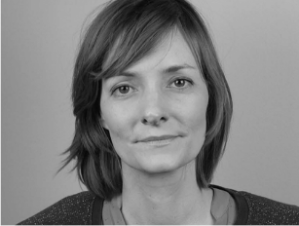 Hi, this is Daniel Garber at the Movies for culturalmining.com and CIUT 89.5 FM.
Hi, this is Daniel Garber at the Movies for culturalmining.com and CIUT 89.5 FM.
It’s as old as humanity, directly experienced by more than half the population, and indirectly by the rest; is crucial to our existence as a species. And yet it’s treated as a dirty and shameful taboo. It’s omnipresent yet never mentioned in public.
I’m talking about menstruation. And because we never talk  about it, women and girls suffer social discrimination and economic hardship, at work and at home, in schools and in prisons. Isn’t it time we open this Pandora’s Box?
about it, women and girls suffer social discrimination and economic hardship, at work and at home, in schools and in prisons. Isn’t it time we open this Pandora’s Box?
Pandora’s Box: Lifting the Lid on Menstruation is a new documentary that delves into its history and culture, and looks at human rights advocates around the world — in India, Kenya, North America and Europe — who are trying to normalize periods and to make them affordable, safe and accessible. It’s written and directed by Rebecca Snow, an award-winning Canadian filmmaker who specializes in social issue documentaries.
Pandora’s Box premiers on Monday, March 8th, International Women’s Day.
I spoke with Rebecca Snow in Toronto, via ZOOM. (Some of the dialogue is inaudible, due to technical difficulties.)
Fighting Monsters. Films Reviewed: Tickling Giants, The Void, The Zookeeper’s Wife
Hi, this is Daniel Garber at the Movies for culturalmining.com and CIUT 89.5 FM.
If relationship, family, work or school problems are too hard to handle, a movie is a good place to escape it. Especially if the people on the screen are fighting real monsters. This week I’m looking at movies bout people facing monsters. There’s a Polish zookeeper facing the Nazis, a political comic facing a military government, and a smalltown sheriff facing something scary… he’s just not sure what.
 Tickling Giants
Tickling Giants
Dir: Sara Taksler
Bassem Youssef is a heart surgeon in Cairo. In the heady days of the Arab Spring, he heads to Tahrir Square to help support protesters as best he can. Many of them are beaten and need medical attention. But what he really wants to be is a comedian – specifically a political comic like Jon Stewart of the Daily Show. Under Mubarek, outright criticism of the government was not permitted. But with the newfound freedom that came with the popular uprising, he is able to launch a TV show, known simply as the show. With a team of writers and producers it brings political satire to the masses. The show is wildly popular, but the newly elected president Morsi, from the Muslim Brotherhood doesn’t like him one bit. So he takes him to court and loses! Baassem Youssef is a free man. Until… Morsi is overthrown in a military coup, putting General Sisi
uprising, he is able to launch a TV show, known simply as the show. With a team of writers and producers it brings political satire to the masses. The show is wildly popular, but the newly elected president Morsi, from the Muslim Brotherhood doesn’t like him one bit. So he takes him to court and loses! Baassem Youssef is a free man. Until… Morsi is overthrown in a military coup, putting General Sisi  in charge of Egypt. Sisi is popular and dictators don’t like criticism. SomeoPro-Sisi protesters declare Youssef a traitor for criticizing the army, while others fear he will disrupt the relative calm the military coup brought. Is Bassem Youssef just what Egyptians need? Or is he too much, too soon?
in charge of Egypt. Sisi is popular and dictators don’t like criticism. SomeoPro-Sisi protesters declare Youssef a traitor for criticizing the army, while others fear he will disrupt the relative calm the military coup brought. Is Bassem Youssef just what Egyptians need? Or is he too much, too soon?
Tickling Giants is a funny and informative documentary about how US style political humour fares in Egypt’s. Illustrated with political cartoons by a young man Andeel, it offers behind the scene look at TV production and how it influences and is affected by politicians. One criticism: it could have been a bit shorter; it doesn’t take almost two hours to tell this simple story.
 The Void
The Void
Wri/Dir: Jeremy Gillespie, Steven Kostanski
Daniel (Aaron Poole) is a police sheriff in a small town – a place with very little crime. So he’s startled to see a bloodied young man, under the influence, come stumbling out of the woods. But when he takes him to the nearby hospital where his wife Alison (Kathleen Munroe) is a doctor in the ER, things get strange. Patients behave erratically, and two heavily armed men show up at the gate threatening to kill the kid. Stranger still, a group of identically-dressed men appear outside the hospital  brandishing large knives. They are wearing white sheets and hoods, sort of like flat-topped Klansmen, but with a mysterious triangle painted on the front their faces.
brandishing large knives. They are wearing white sheets and hoods, sort of like flat-topped Klansmen, but with a mysterious triangle painted on the front their faces.
And otherworldly visions appear in Daniel’s mind, full of dark clouds roiling over a lunar landscape. Has the town been invaded by satanic worshippers, drug fiends or sex-crazed maniacs? Nobody knows for sure. It’s up to the people trapped in the hospital — including a  pregnant woman, a kindly doctor (Kenneth Welsh) a young intern, and a state trooper (Art Hindle) – have to settle their differences and fight the mysterious powers before they tear each other apart.
pregnant woman, a kindly doctor (Kenneth Welsh) a young intern, and a state trooper (Art Hindle) – have to settle their differences and fight the mysterious powers before they tear each other apart.
The Zone is a horror and psychological thriller about ordinary people driven to extremes in there resistance to unknown killers. There are some fun scenes and a few shocking parts — and I loved the weird images that appear in Daniel’s head — but on the whole, it’s more unintentionally funny that genuinely scary. Some of they dialogue is atrocious, and much of the movie left me scratching my heads as to what exactly is going on. (For example, when two characters are fighting in an imaginary landscape, you don’t know which of them is hallucinating.) I kept waiting for the robot commentators from Mystery Science Theatre 3000 to appear on the screen to explain it all to me.
 The Zookeeper’s Wife
The Zookeeper’s Wife
Dir: Niki Caro
It’s 1939 in Warsaw. Husband and wife Antonina and Jan Zabinsky (Jessica Chastain and Johan Heldenbergh) run the zoo as if the amimals are family members. Especially Antonina. She’s a female Doctor Doolittle, who really does talk to the animals. She goes for daily runs around the park with a dromedary and sleeps with a white lion cub. And at a party, everyone sees her save an elephant calf from choking. Especially impressed is Lutz  Heck, a leading German zoologist (Daniel Brühl). But when the Germans invade, their world is turned upside down. The zoo is bombed and wild animals run rampant across the city. Afterwards Lutz offers to help save the zoo animals by sending the best ones – the purest breeds – to Berlin. (Purest breeds? Sounds a bit Nazi…) Sure enough, the next time she sees him, he’s dressed in full Nazi regalia. He’s a high-ranked officer. And he has his eye on the beautiful Antonina. But she and Jan have a
Heck, a leading German zoologist (Daniel Brühl). But when the Germans invade, their world is turned upside down. The zoo is bombed and wild animals run rampant across the city. Afterwards Lutz offers to help save the zoo animals by sending the best ones – the purest breeds – to Berlin. (Purest breeds? Sounds a bit Nazi…) Sure enough, the next time she sees him, he’s dressed in full Nazi regalia. He’s a high-ranked officer. And he has his eye on the beautiful Antonina. But she and Jan have a  plan of their own: to help save their Jewish friends and colleagues from certain death in the Warsaw Ghetto, and help move guns to the resistance. The concoct a complex plan to smuggle people out of the ghetto inside a garbage truck holding slop to feed their pigs. (They’ve turned their beloved zoo into a pig farm.) They are hidden in plain sight, inside the Zabinsky villa even while Lutz is operating an army base on the same premises. Will there plan succeed? Or will they and their rescued friends be sent to their deaths?
plan of their own: to help save their Jewish friends and colleagues from certain death in the Warsaw Ghetto, and help move guns to the resistance. The concoct a complex plan to smuggle people out of the ghetto inside a garbage truck holding slop to feed their pigs. (They’ve turned their beloved zoo into a pig farm.) They are hidden in plain sight, inside the Zabinsky villa even while Lutz is operating an army base on the same premises. Will there plan succeed? Or will they and their rescued friends be sent to their deaths?
Based on a true story, the Zookeeper’s Wife is a romantic drama set in war-torn Warsaw, where a zoo serves as a secret sanctuary for Jews escaping the Nazi death machine. It’s also a Holocaust rescue story… with furry animals. As  such, it abbreviates familiar images that have been shown in movies so often: broken windows, Nazi banners covering public buildings, ashes falling like snowflakes, children loaded onto cattle cars… At the same time, it avoids most of the blood, death and gore — the camera always turns away. There are some devestatingly sad parts, like a young girl, Urszula (Shira Haas) who is raped by two German soldiers before she is rescued. Still the movie didn’t show me much I haven’t already seen, aside from the zoo — which had new, haunting images.
such, it abbreviates familiar images that have been shown in movies so often: broken windows, Nazi banners covering public buildings, ashes falling like snowflakes, children loaded onto cattle cars… At the same time, it avoids most of the blood, death and gore — the camera always turns away. There are some devestatingly sad parts, like a young girl, Urszula (Shira Haas) who is raped by two German soldiers before she is rescued. Still the movie didn’t show me much I haven’t already seen, aside from the zoo — which had new, haunting images.
Good as a tearjerker.
The Zookeeper’s Wife and The Void both open today in Toronto; check your local listings. Tickling Giants is playing at the Human Rights Watch Film Festival this weekend. Go to tiff.net/human-rights-watch/.
This is Daniel Garber at the Movies, each Friday morning, on CIUT 89.5 FM and on my website, culturalmining.com
Daniel Garber talks to Migrant Dreams director Min Sook Lee
 Hi, this is Daniel Garber at the Movies for culturalmining.com and CIUT 89.5 FM.
Hi, this is Daniel Garber at the Movies for culturalmining.com and CIUT 89.5 FM.
Canada is a land of opportunity for citizens and permanent residents alike. Immigrants, students and asylum seekers share in the country’s bounty. But not everyone has the rights and privileges the average Canadian  takes for granted. Temporary Foreign Workers lead a precarious existence, subject to fraud, abuse and neglect by their employers. Many come saddled with a crippling debt owed to the recruiters who bring them here. Workers who fight back are threatened with job loss or even deportation. Will Temporary Foreign Workers ever achieve their migrant dreams?
takes for granted. Temporary Foreign Workers lead a precarious existence, subject to fraud, abuse and neglect by their employers. Many come saddled with a crippling debt owed to the recruiters who bring them here. Workers who fight back are threatened with job loss or even deportation. Will Temporary Foreign Workers ever achieve their migrant dreams?
Migrant Dreams is a new documentary having its world premier  at Hot Docs Documentary Film Festival on May 9th. It follows the plight of a group of Indonesian women working in the greenhouses of Leamington, Ontario. It was directed by award-winning filmmaker Min Sook Lee, known for her documentaries on the plight of persecuted minorities and precarious labourers.
at Hot Docs Documentary Film Festival on May 9th. It follows the plight of a group of Indonesian women working in the greenhouses of Leamington, Ontario. It was directed by award-winning filmmaker Min Sook Lee, known for her documentaries on the plight of persecuted minorities and precarious labourers.
I spoke to Min Sook Lee at CIUT.
Daniel Garber talks to Elisa Paloschi about her new documentary Driving with Selvi premiering at the ReelAsian Film Festival
 Hi, this is Daniel Garber at the Movies for cultural mining,com and CIUT 89.5 FM.
Hi, this is Daniel Garber at the Movies for cultural mining,com and CIUT 89.5 FM.
Selvi was a 14-year-old child bride in Southern India. Her husband was so abusive she contemplated suicide, but instead ran away. She made her way to home for young women where she learned to be a driver, and after a ten-year journey, she became South India’s first female taxi driver. How did she reach that stage? And what’s it like to go driving with Selvi?
home for young women where she learned to be a driver, and after a ten-year journey, she became South India’s first female taxi driver. How did she reach that stage? And what’s it like to go driving with Selvi?
Driving with Selvi is also the name of a new Canadian documentary that tells her story. It’s directed by Toronto-based filmmaker Elisa Paloschi, known for her documentaries dealing with social issues around the world. Her film is having its premier at  Toronto’s ReelAsian film festival. I spoke with Elisa in studio about visiting India as a tourist, how she first met Selvi, 10 years of shooting the film, making a film in a developing nation, why Indian women in smaller cities rarely drive, Selvi’s motivation, human trafficking, child brides, poverty, feminism, women as second-class citizens, dowries, divorce, motivation, how to share her story …and more! The film has its Toronto premier on November 5, 2015, at the ReelAsian Film Festival.
Toronto’s ReelAsian film festival. I spoke with Elisa in studio about visiting India as a tourist, how she first met Selvi, 10 years of shooting the film, making a film in a developing nation, why Indian women in smaller cities rarely drive, Selvi’s motivation, human trafficking, child brides, poverty, feminism, women as second-class citizens, dowries, divorce, motivation, how to share her story …and more! The film has its Toronto premier on November 5, 2015, at the ReelAsian Film Festival.
Daniel Garber talks with Paul Emile d’Entremont about his new NFB documentary LAST CHANCE
Hi
This is Daniel Garber at the Movies for CulturalMining.com and CIUT 89.5 FM.
Canada has long been known as a safe haven for refugees from around the world who come here to escape persecution or physical danger in their home countries. A new documentary from the National Film Board, LAST CHANCE, looks at five members of a “particular
social group” as covered in the 1952 UN Charter. These five people — from Jamaica, Egypt, Lebanon, Colombia and Nicaragua — are all LGBT (lesbian, gay, bisexual, or transgendered) refugees.
The film’s director, Paul Emile d’Entremont spent more than three years and travelled to five countries and across Canada to capture their stories. The film follows the subjects as they struggle to escape physical and
emotional persecution and achieve refugee status in their new country of safe haven.
Paul Emile, speaking by telephone from Halifax, Nova Scotia, explains the special obstacles they face, why one man had his sexuality questioned, what particular dangers refugees can encounter even in so-called “safe” nations, how a series of upcoming legal changes — based on Bill C-31 — could impact potential refugees, and more.
The film LAST CHANCE is available for free viewing this weekend (Dec 7-9, 2012) in honour of International Human Rights Day.
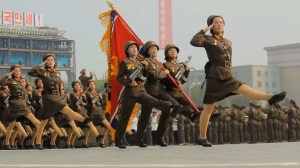

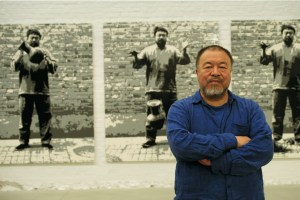

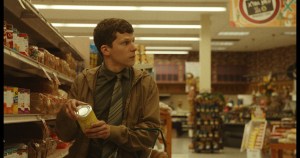

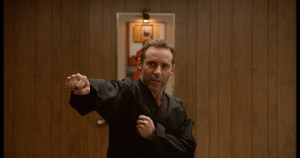
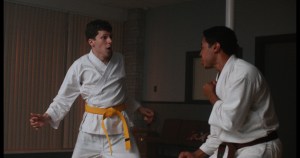
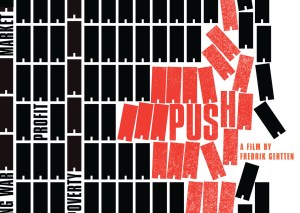


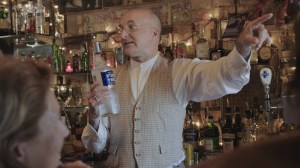

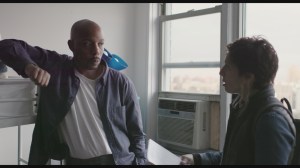
leave a comment